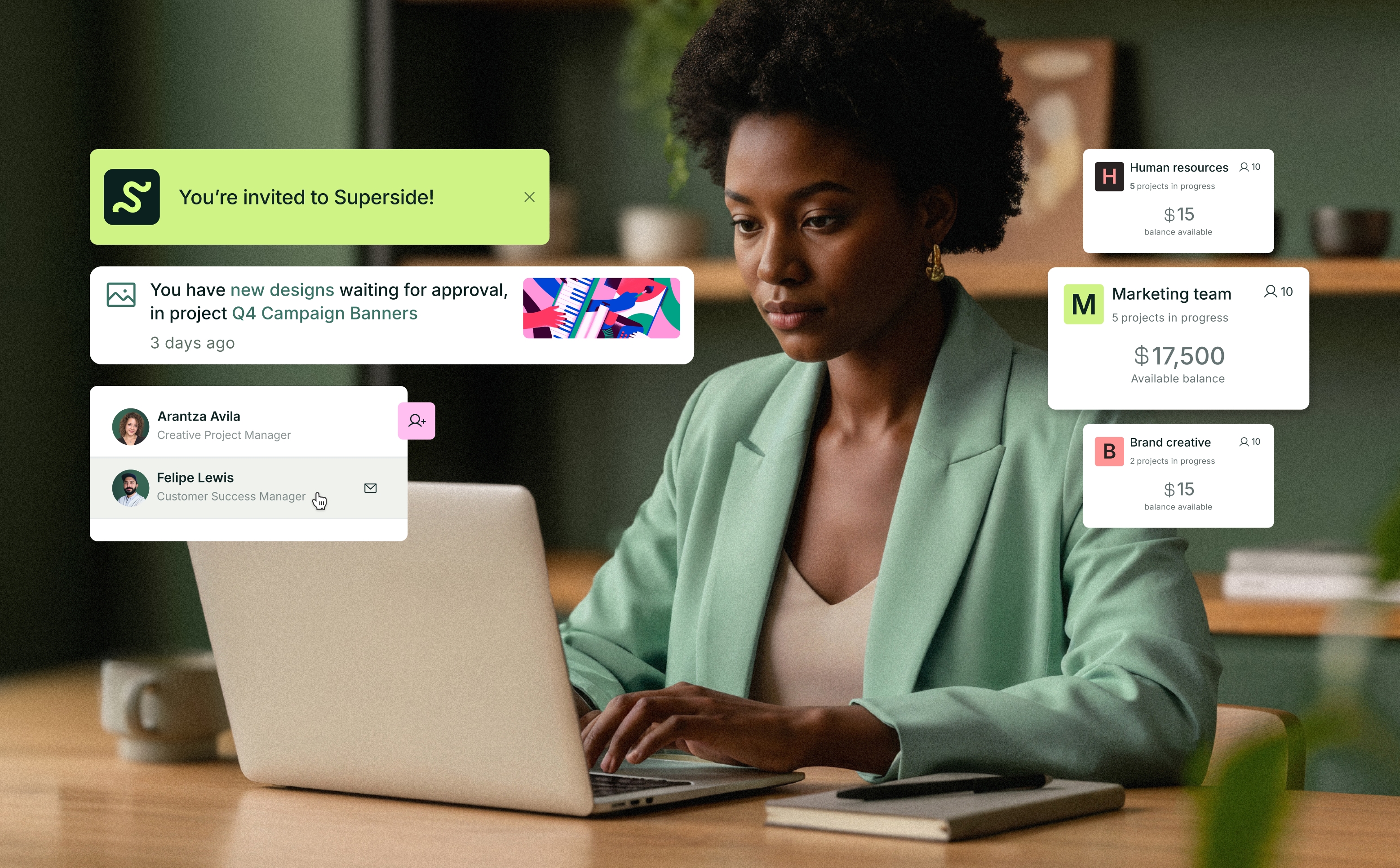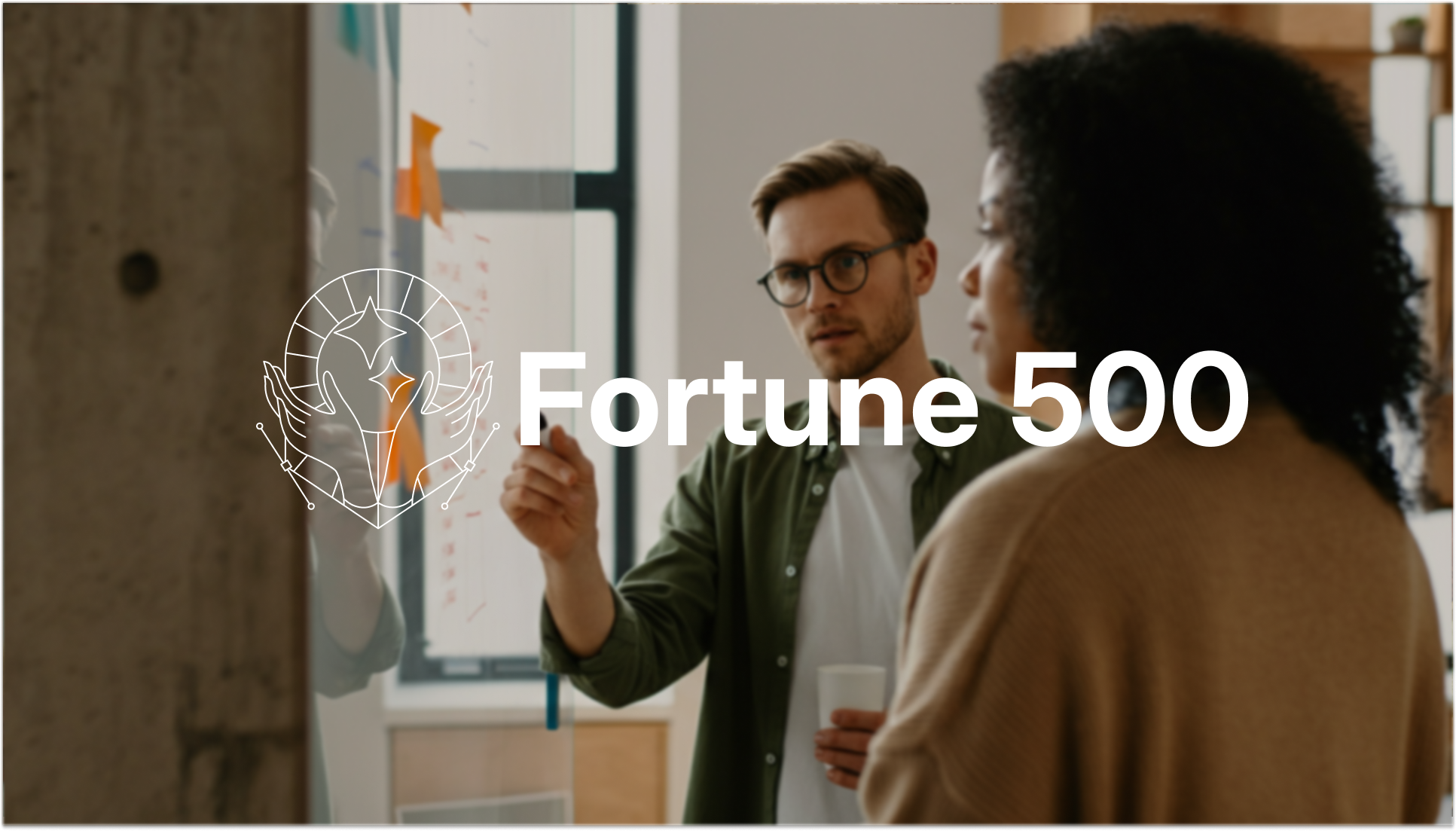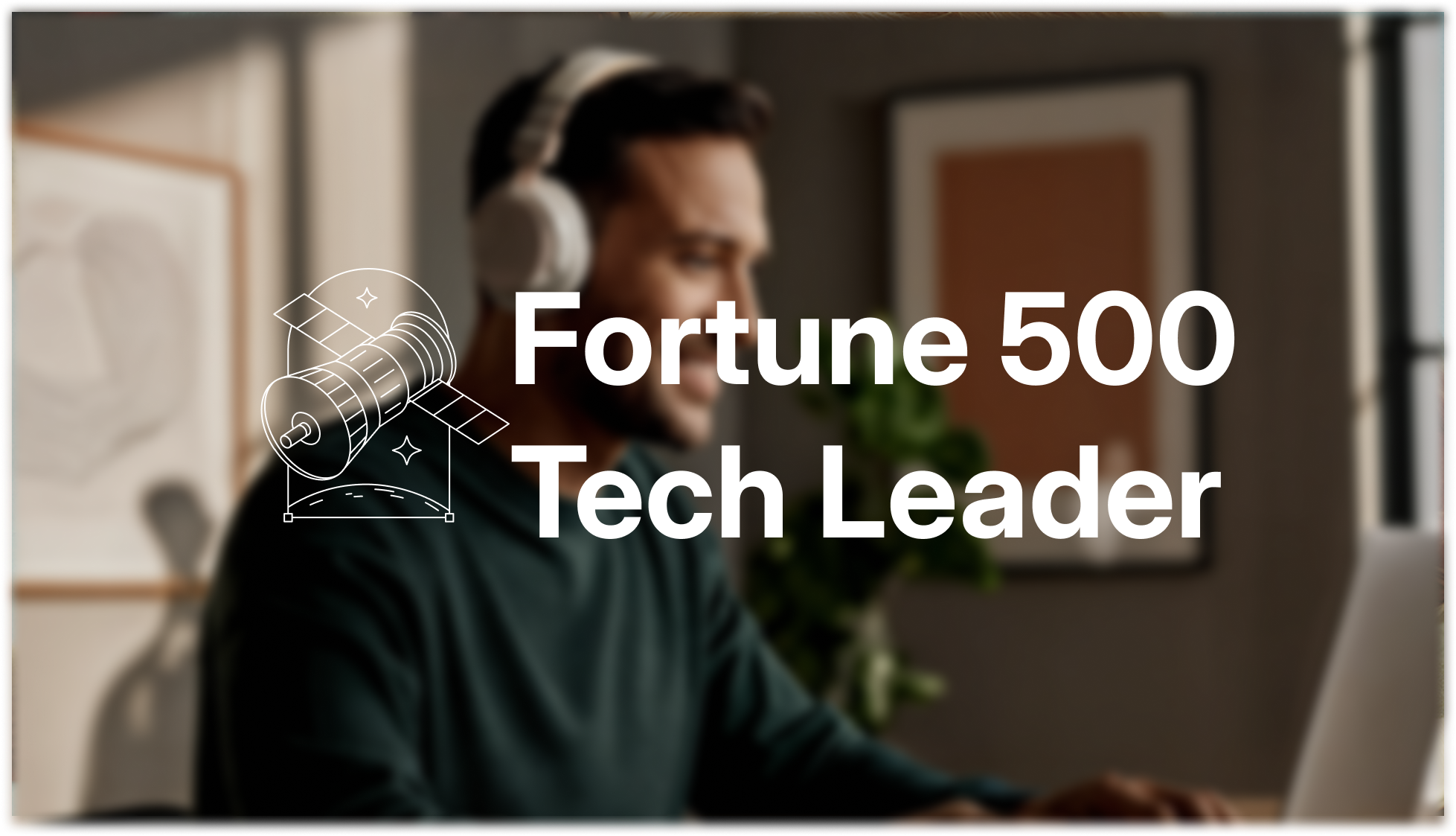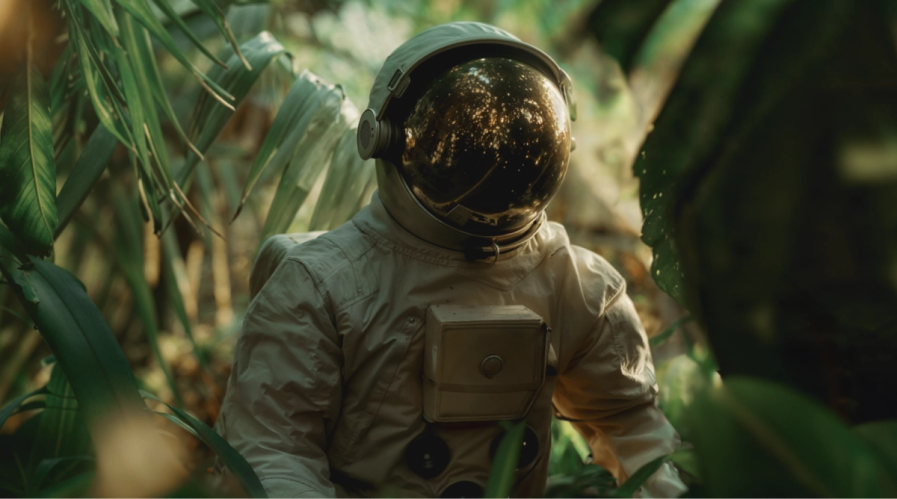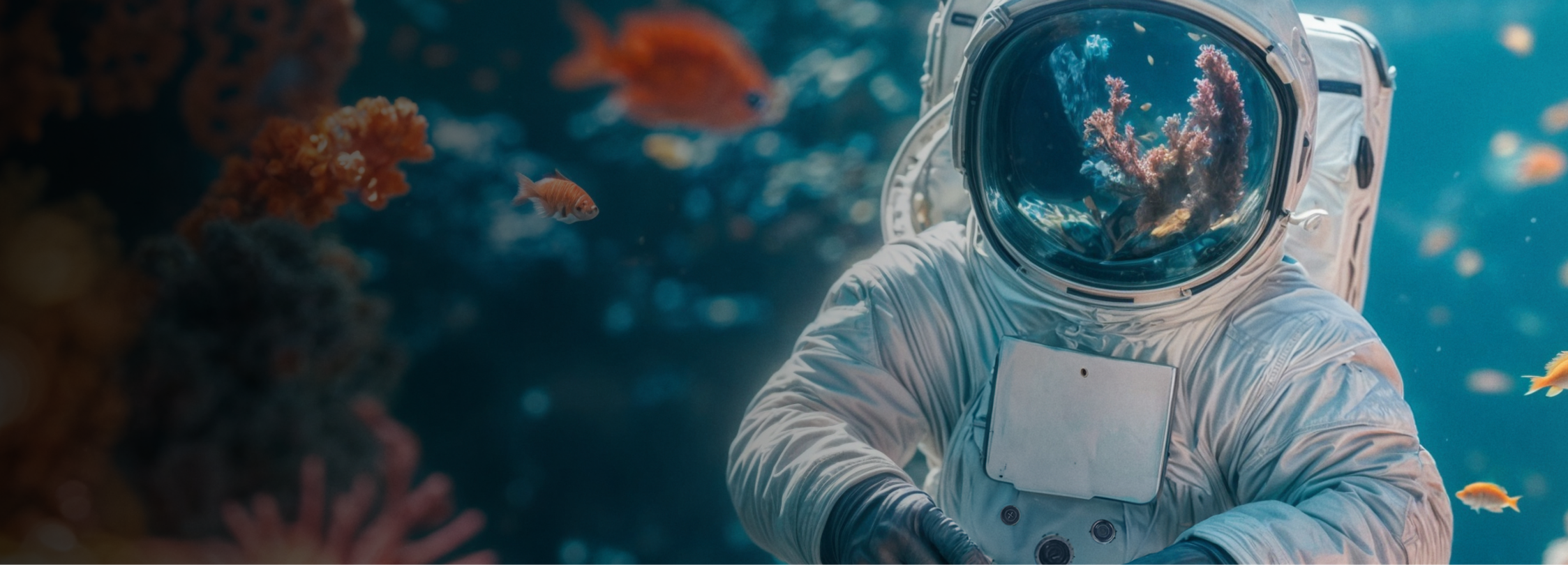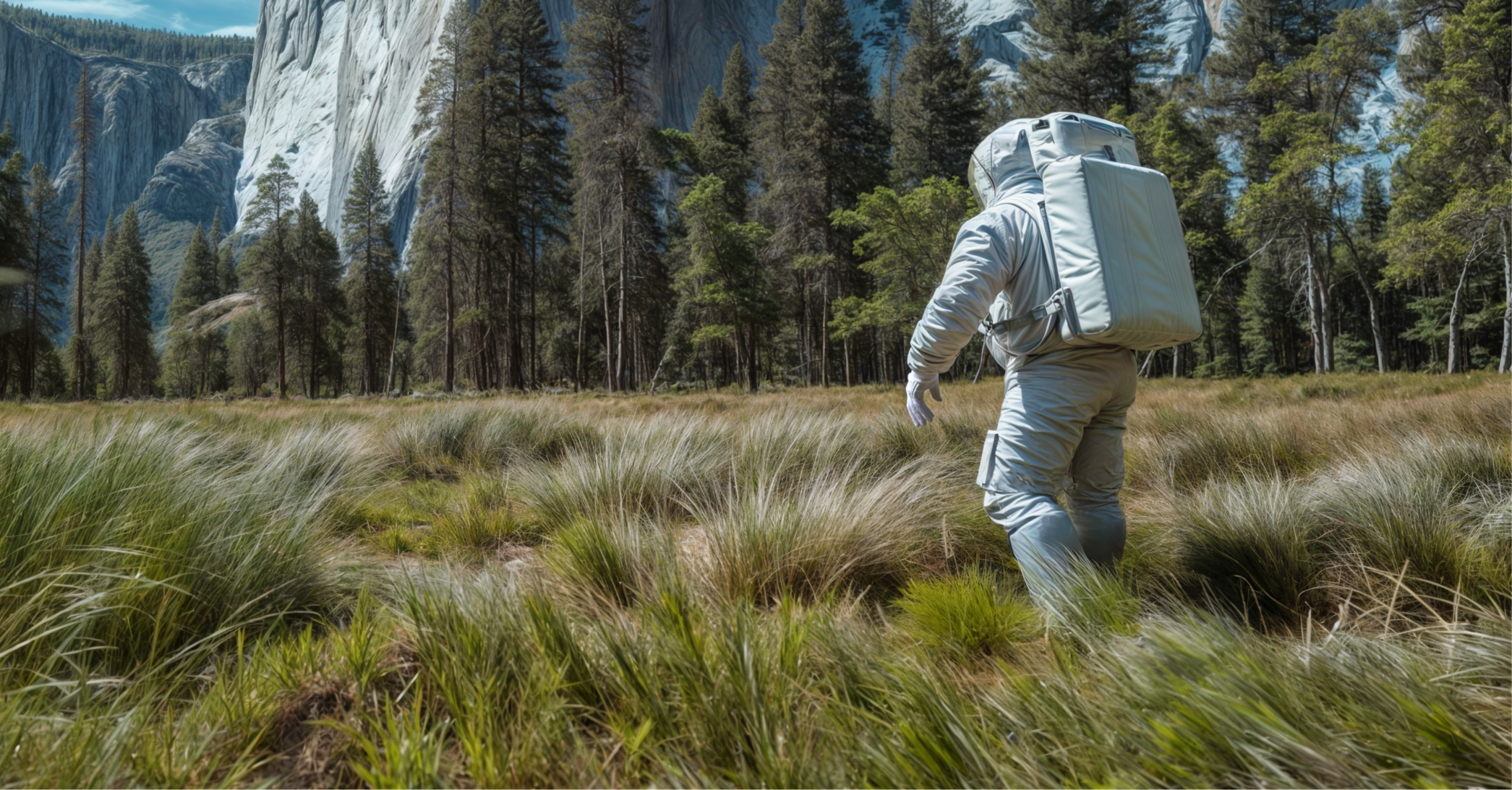
AI readiness? But you only just finally started learning all the names of the tools. Don't worry. This article will walk you through AI Readiness, how to assess it and why it's so important to making the most of integrating and scaling AI within your creative team.
Many creative teams are ready to move from experimenting with AI to integrating it into their creative workflows. The challenge is getting started.
While a majority of creative professionals (83%) and businesses (97%) believe strongly in the value of adopting AI, barely over one tenth (14%) feel ready.
As humans, the moment we feel doubt, fear and hesitation also creep in. But, in an industry that's experiencing one of its most rapid and greatest transformations, the question isn't should you be ready, it's how to get ready: Preparing your people and your processes so they can successfully adapt.
There's more to AI transformation than picking a tool and running with it. In this article, we'll discuss how to systematically evaluate your teams and your workflows so that you can establish a stronger foundation for success.
What Is AI Readiness?
In a single sentence: AI readiness the extend to which your team is ready to start using generative AI and unlocking the full benefits from this technology.
Now that we've defined it, the next question is: Why is AI readiness so important?
As in-house teams are pressured to incorporate AI, many struggle to navigate the fast-changing environment. The often-used ‘tool-first’ approach has failed many of them.

The debates between human and machine are endless. Yet the fact remains that the top barriers to AI adoption—education, awareness and skill sets—are all human-related.
As teams rush to get started, turning on the tech before taking good look at where they are and where they need too start, the find themselves fumbling.
By evaluating AI readiness, you can see where both your opportunities and gaps are. You can pilot workflows with the lowest risk and greatest reward and develop solutions like training programs.
Take the Quiz
Yes, we advocate patience and planning. But, as a warm-up exercise, we wanted to give you the chance to take a sample AI readiness assessment.
A formal assessment would tailored to your organization. This is simply a sneak peek at the kinds of questions you can ask and information you can gather.
Assessing AI Readiness: 4 Key Areas for Creative Teams to Target
In order to be systematically ready to roll out and ultimately, scale generative AI, leaders need too examine their people, processes, tools and guidelines.
The real challenge in adopting AI is not the technology, but understanding where and how to incorporate it in existing workflows and how to bring along an organization that is split between skepticism and fear.

People: Are your teams ready for AI?
People need to come first. It’s easy to look at the benefits of using AI tools, focusing on productivity gains and forgetting about the impact they have on your teams. You could have the best tool on the market, perfectly suited for your organization’s needs, but if your team isn’t ready to adopt it, you won’t see any of these benefits.
Change is inherently difficult, filled with uncertainty and even resistance. Embracing the emotional journey of your team's AI transformation—joy, frustration, fear and excitement—is crucial.

Assessing AI readiness on creative teams
First, you need to know where you’re at. You can do this with employee surveys, feedback forms and even one-on-one meetings. Depending on the size of your team or teams, you might be able to get data from everyone or need to focus on a representative sample. Either way, the goal is to get a baseline to work from.
Next, start charting the course for where you want them to be. What does AI readiness look like for your organization? For many, it’s a feeling of psychological safety, or being able to say what’s on their mind. It might also mean alleviating any fears about being replaced.
Calling your people AI-ready will look a little different for each organization, but it generally means there won’t be any barriers to AI adoption and your people have the training they need to make the most of these tools.
Promoting a culture of innovation
If you find that your people aren’t ready to adopt AI, you have two solutions: education and culture.
- Education. Take the time to teach people how these tools work, what they’re going to be used for, and how they’ll affect the work you do every day. It means giving them the skills to use those tools and the knowledge to not fear being replaced.
- Culture. If you build a culture of iteration and change at your organization—meaning everyone’s always looking for ways to improve the way things are done—you’ll get less resistance to implementing AI. Not only that but people will be excited by the possibilities.
Processes: Where does it make the most sense to get started with AI?
Before you start using an AI tool, you have to know where you need it and what you expect it to achieve.
Look at your existing workflows
You know your teams and the initiatives that take the most effort. What you want to do next is dive deeper to see where the opportunities lie, evaluating which processes:
- Take the most time
- Would be a best fit for piloting AI
- Have the least risk and the greatest reward
Consider all the places AI can add value
Image and video tools deserve there share of the spotlight, but as tools like ChatGPT, Gemini, Copilot and others have shown, functionality is just as flashy.
AI can help creative teams at every stage of their workflows including ideation, creation and enablement. For instance, it can help you brainstorm and build briefs, develop the assets, ensure consistency, version the creative and more.
Choosing AI pilot projects
Once you've pinpointed where to start with generative AI in your creative workflows, you also want to apply the lens of what's appropriate for your business and your brand. To apply this filter, ask:
- Has the AI use-case reached maturity? Images and illustrations are there and video is on the fast track. The more a process has been tried and tested, the more information and experience you'll be able the leverage.
- Does this make sense for your business or your brand? Case in point, Dove personal care product promote natural beauty, which is why at this stage they prefer to only feature real photographs of real humans.
- What's the primary gain? Is the problem you're solving going to boost the bottom line or cause substantial upheaval. Be sure you have your theories and proof points.
AI design tools: It pays to be picky
The proverb, "A poor carpenter blames their tools." This sentiment is incredibly accurate in the time of AI. Anyone can buy paint. Only an artist can create a masterpiece.
Match your tools to your workflows
The list of generative AI graphic design tools and applications keeps growing exponentially. Breaking them down into lists based on use case, helps quick start your assessment process. Below is a list of top AI tools, sorted according to what they do best.
| Text | Image | Video | Other |
|---|---|---|---|
| ChatGPT | Midjourney | Runway | Synthesia |
| Jasper | Firefly | Luma | ElevenLabs |
| Claude | DALL-E | Kaiber | Vectorizer.AI |
| Gemini | Leonardo | PixVerse | ClipDrop |
| Perplexity | Scenario | Haiper | Topaz Labs |
| Bing | Pika | KLING | Magnific AI |
| Llama | Krea | Pictory | Suno |
Get even more granular
Once you've got a short list of tools, take the time to consider:
- How easy the tool is to use and how much training it'll require
- What's the cost and does the pricing align with the value it provides?
- Does this tool work well with other tools you already use or will it require significant changes?
- Does the tool meet your company's legal and ethical standards?
Responsible use: Demonstrating leadership
In times of change, no one has all the answers. However, early leaders have gotten a head start by creating responsible use guidelines for their creative teams. Basically, they're your handbook for using generative AI, the outline best practices for:
- Privacy and Security. Protecting your company's and your customer's sensitive information (antivirus software and a password manager are highly recommended).
- Use cases. When and when not to use AI for marketing and creative.
- Best practices. How to avoid bias and ensure you're respecting creator's rights and AI copyright laws.
Ensure open communication
Your guidelines will be a living document and you'll collaborate legal, brand and other teams to ensure you have current and accurate guidance. You'll also want your teams to know exactly where to find the guidelines and who to see when they have questions.
Know that progress is never linear
The path to success can be paved with detours. You can plan and prepare. But, to be fair, there will still be times when you hit roadblocks. It's normal and you'll work your way through them.
Partnering With Other Leaders
At Superside, AI transformation started with our own teams. We knew we wanted to be experts and pass this knowledge on to our customers. We've upskilled hundreds of our own experts and built hundreds of AI-powered creative workflows that have not only saved millions in design costs, they've produced jaw-dropping creative. We've even started to unlock possibilities like creating custom comic books, something that wouldn't have even been feasible a year ago.
But, it isn't about us, it's about what we can help you do, whether it's using AI to unlock possibilities or helping you with you with your AI transformation. To learn more, book a call below.



